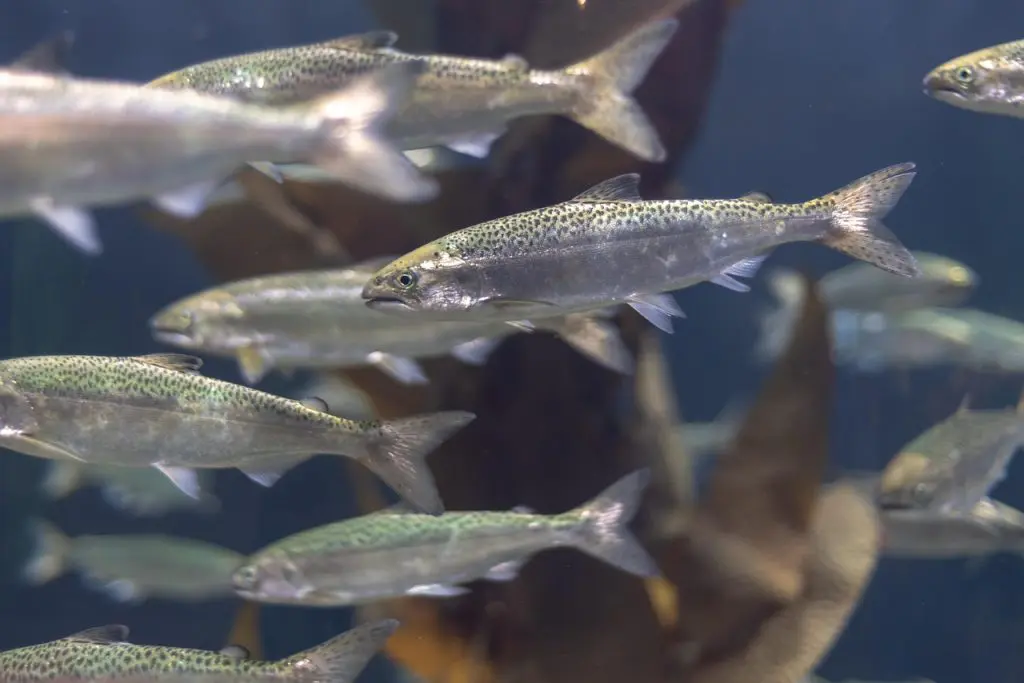
Fish Kill in North Cork: Anglers Alarmed as Thousands of Fish Die in River Blackwater A significant fish kill in North Cork’s River Blackwater and its tributaries has devastated local angling communities and sparked what some are calling an “ecological disaster.” Since August 12, thousands of fish, mostly brown trout, have died across a 30km […]
A significant fish kill in North Cork’s River Blackwater and its tributaries has devastated local angling communities and sparked what some are calling an “ecological disaster.” Since August 12, thousands of fish, mostly brown trout, have died across a 30km stretch of river, from Roskeen Bridge in Lombardstown to Killavullen Bridge.
Estimates vary widely: Inland Fisheries Ireland (IFI) has confirmed between 8,000 and 10,000 fish deaths, while local angling clubs in Mallow, Lombardstown, and Killavullen estimate up to 46,000. The discrepancy is due in part to fish lost to predators or unseen in the riverbed, and no official cause has yet been identified.
The Environmental Protection Agency (EPA) has inspected water treatment plants and licensed commercial discharges in the affected area. But nothing of concern has been found so far.
For anglers like John Flynn, secretary of Killavullen Angling Club, the loss is deeply personal. “I am looking out at the river now and it just looks dead,” he said. After fishing there for over 50 years, he had hoped to enjoy the river more in retirement, but now describes the sight of lifeless or struggling fish as “horrific.”
Others, like John Ruby, chairman of Mallow Angling Club, echo the sense of despair: “it is so depressing at the moment and there is a deadness around the place, especially around the river—it is silent.”
The fish kill has forced several fisheries to close, hitting tourism and income. Conor Angland, a fishery operator and fly-casting instructor, had to cancel bookings with anglers from the UK, France, Germany, and the US. “I would have up to 12 to 14 people a day fishing,” he said. “Judging by the amount of fish that have been killed and the amount of juvenile salmon that were seen [among those], the next three or four years, there will be nothing to fish for.”
The Environmental Protection Agency (EPA) and the Marine Institute are conducting tests on water and fish samples. Preliminary results from the EPA show no evidence of industrial or wastewater-related pollution. The water quality is reported as normal, but the full analysis may take weeks.
Inland Fisheries Ireland notes that high temperatures, low water flow, and underlying water quality issues may have contributed. Fungal infections are visible on surviving fish, and conditions like algae die-offs may have reduced oxygen levels, weakening fish and making them more susceptible to disease.
John Murphy, of conservation group Salmon Watch Ireland, highlights the long-term stress on the Blackwater catchment from agricultural runoff, nutrient loading, and poor wastewater treatment, especially under climate pressures like low rainfall and high temperatures.
Anglers also worry about the broader ecosystem. Otters, swans, kingfishers, and herons, all of which depend on river life, may suffer from the sudden disruption. A small number of dead birds have been observed in the area. One disoriented cormorant was found in a residential area, raising alarms about the reach of the incident.
The long-term impact remains unclear. Salmon, already under pressure in Irish rivers, could lose an entire generation, according to John Flynn, if spawning is disrupted this autumn.
Inland Fisheries Ireland will meet with angling representatives to share updates. Acting CEO Suzanne Campion called the event “very distressing” and said IFI staff will continue to monitor the situation. She confirmed that dead fish should not be removed from the river during the investigation.
While state agencies play a central role, local communities can be powerful stewards of rivers. Angling clubs, wildlife groups, and schools can lead stream restoration projects, citizen science efforts, and awareness campaigns. Strengthening these grassroots networks could accelerate recovery in affected areas and help foster a long-term culture of river conservation.
Fish kills are becoming more common in Ireland. Earlier this year, more than 1,000 fish died in the Ballinagh River in Cavan, and another 1,500 in a Cork City tributary. Recent convictions for water pollution include Tirlán, Uisce Éireann, and other companies.
Anglers like JP Butler, chair of Thurles Angling Club and member of the Mallow club, are calling for modernised legislation, arguing that current fines are too lenient to act as deterrents.
This fish kill has left the River Blackwater and its community reeling. Without clear answers, speculation and concern continue to grow. Anglers who rely on these waters for recreation and livelihood are demanding transparency, accountability, and renewed action to protect Ireland’s fragile freshwater ecosystems.
At All-Ireland Sustainability, we’re committed to building a greener, fairer island, together. Stay informed on the latest environmental initiatives, community action, and policy developments shaping sustainability across Ireland, North and South.
👉 Sign up for our newsletter today and be the first to hear about upcoming events, expert insights, and ways to get involved.
Whether you’re a seasoned advocate or just starting your journey, new members are always welcome.
Subscribe now and be part of the All-Ireland Sustainability network.